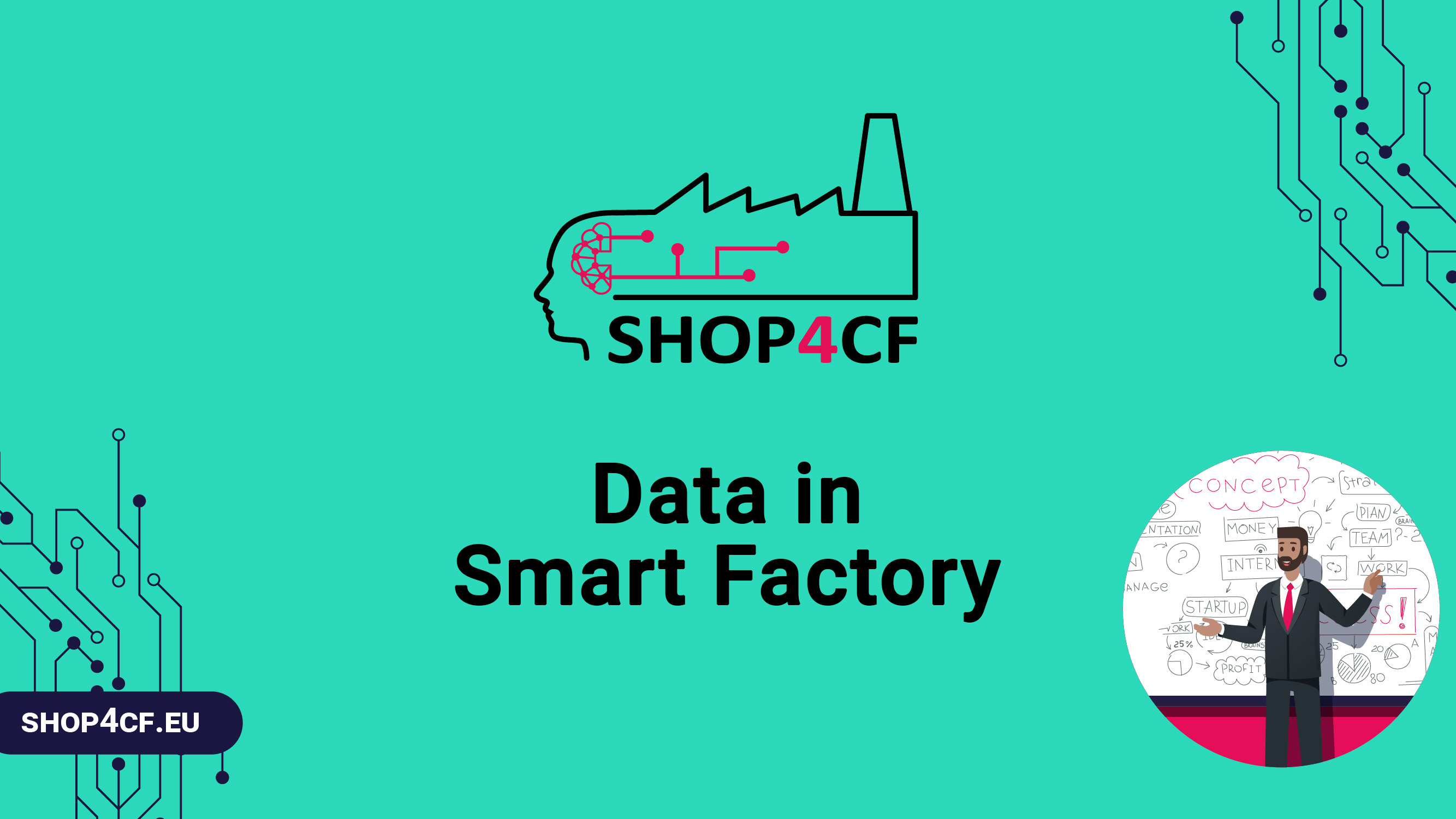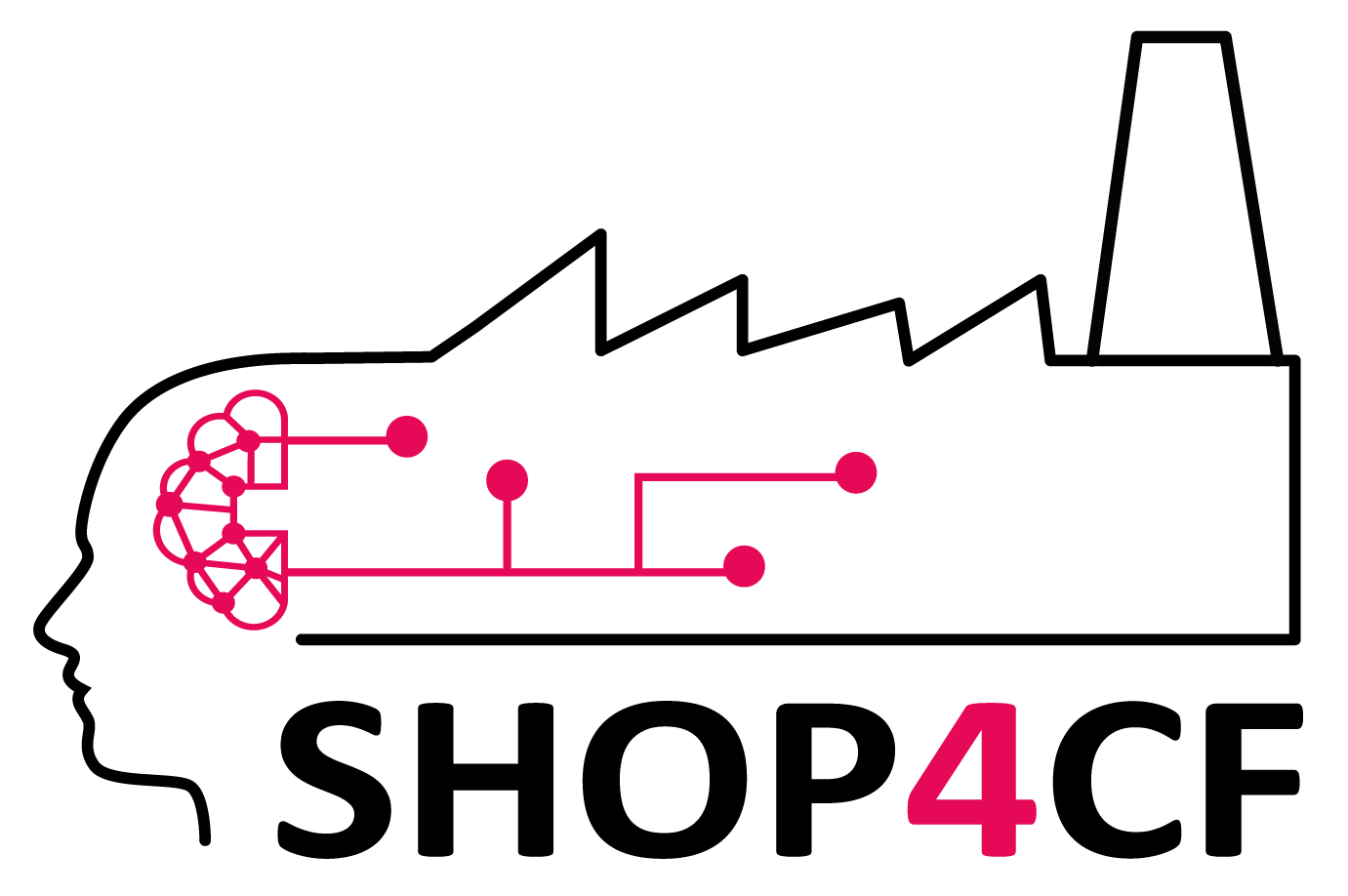Data in Smart Factory
SHOP4CF

About This Course
In an era where Industry 4.0 is reshaping the landscape of manufacturing and business operations, understanding the legalities of data processing and AI applications becomes pivotal. This course offers an in-depth exploration of the legal aspects concerning the processing of both personal and non-personal data within these advanced environments. It emphasises the challenges inherent in these processes and underscores the importance of robust data management systems.
Description
The course covers the legal aspects of the processing of personal and non-personal data in complex Industry 4.0 environments, the challenges involved and the importance of solid data management mechanisms. It also covers the legal aspects of automated decision-making processes and the transparency of AI systems. The course will present the basics of EU legislation regarding data exchange, data management, reuse of public sector data, as well as legal requirements for data used for training and validation of AI systems. Key learning outcomes are:
Understanding the Legal Landscape of Data Processing:
Grasp the complexities of handling personal and non-personal data in Industry 4.0 settings.
Examine key legal principles, including data privacy, security, and compliance requirements.
Data Management in Industry 4.0:
Learn about the integration of IoT, cloud computing, and cyber-physical systems in data handling.
Analyse case studies on data management best practices and pitfalls.
Challenges in Data Processing:
Discuss real-world scenarios highlighting the challenges in data processing within Industry 4.0.
Explore the balance between technological advancement and legal compliance.
Legal Frameworks for Automated Decision-Making:
Delve into the legal aspects of AI and machine learning, focusing on automated decision-making.
Understand the implications of algorithmic decisions in various industries.
Discuss ethical considerations and the impact of AI decisions on society.
EU Legislation on Data Exchange and Management:
Analyse EU legislation relevant to data exchange and management, including GDPR.
Examine the legal basis for the reuse of public sector data.
AI System Validation and Training Data:
Investigate legal requirements and ethical considerations in using data for AI training and validation.
Learn about biases in training data and their legal implications.
Contents
Section 1: Introduction
Smart Factory Data Complexity
Section 2: Machine Data as Non-personal data, Mixed Data Sets and the Contextual Nature of Data
Non-personal data, Mixed Data Sets
The Contextual Nature of Personal Data
Key Takeaways
Section 3: Privacy Challenges in the Modern Manufacturing Environment
Data Quality and Accuracy
Challenges in Processing Personal Data
Sensitive Data
Automated Decision Makin
Key Takeaways
Section 4: Managing and Sharing Data in the EU
Challenges Related to “Data Ownership” in the EU
Key Takeaways on “Data Ownership”
EU Legislation on Data
Data Governance Act, Data Act
AI Act
Legal Framework for Data Key Takeaways
Section 5: Quiz
Goals
-

Explore the legal challenges and implications of data generated and processed in smart manufacturing.

Understand the dynamic nature of personal data and the risks associated with re-personalization.

Gain insights into the legal frameworks governing data privacy.

Equip oneself with the tools to make informed decisions in automated environments. Evaluate the ethical and practical challenges of automated decision-making processes.

Stay updated with the latest regulations and best practices in data privacy and governance. Learn about the latest EU legislation regarding data in AI, IoT and IIoT systems.
Course staff
-
<>
-
Gabriela Bar, PhD, Opole University
/I. Overview/ Attorney at law, CEO at Szostek_Bar and Partners, 25 TOP Lawyers in Business (Forbes), Member of IEEE Law Committee, Women in AI. Researcher in EU projects: SHOP4CF and MAS4AI. Lecturer, author of books and articles. Linkedin: https://www.linkedin.com/in/gabriela-bar/
Frequently Asked Questions
What web browser should I use?
The Open edX platform works best with current versions of Chrome, Edge, Firefox, Internet Explorer, or Safari.
See our list of supported browsers for the most up-to-date information.

